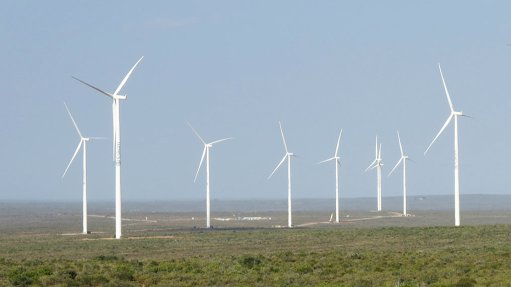Citrus fruit dispute sequel
It’s said there are seven foods that have led to war and that civilisation is a mere 24 hours and two meals away from barbarism. It probably depends on your definition of barbarism, as we might already be experiencing it without being deprived of food. Would you know which foods have led to wars, and whether these included fruit?
According to www.mentalfloss.com, the foods are pastries; rice; a pig; bread, grain and flour; blue crabs; sugar and spice; and salt. So, no fruit, and no poultry as well. In the South African trade environment, there are two firm food favourites – “there is no two ways about it”, as one of my favourite bosses used to say. Although the two foods might not have led to an actual war, they have led to a war of words, which culminated in consultations at the World Trade Organisation. They are, of course, chicken and oranges.
You might well have thought of garlic, but unlike the Americans and Europeans, who took issue with antidumping and safeguard duties on frozen chicken, and the Europeans, who took issue with the health of South African oranges, the Chinese seem to be less fazed about the repetitive garlic dumping duties.
As for oranges, have you ever wondered as to what came first, the colour orange or the fruit?” This is reminiscent of the chicken-and-egg question, but let sleeping dogs lie on chicken, as I have no doubt there will be a chicken column before the year is out. As for the orange question, orange the fruit was named before its corresponding colour was.
As has been the case with several articles in this column, this piece is a sequel. Maybe, as in Hollywood, South Africa is running out of ideas, or this may be evidence of South Africa’s lack of agricultural diversity. Or is it reminiscent of Spencer Johnson’s motivational business fable – Who Moved My Cheese? – where the mice return to the same spot, expecting the same result.
Adding to the theme of repetition, the column of August 26, 2022, ‘Citrus fruit dispute’, posed the question: Why not export the citrus products to the UK? Let me add a sequel question: Why the fixation with the European Union (EU)?
On April 25, the media reported that President Cyril Ramaphosa had slammed the “unfair” EU citrus treatment. As my mother taught me, “life is unfair, but that all is fair in love and war”, which begs the question: Is international trade not war? The definition of a trade war is a situation where countries try to damage one another’s trade. So, by definition, this is not a war, as South Africa seemingly cannot damage the EU’s trade.
According to one report, Ramaphosa condemned the EU for placing restrictions on South African citrus exports to prevent the importation of non-indigenous moths (False Codling Moth, or Thaumatotibia Leucotreta), which stranded tonnes of fruit at sea when introduced last year. Could it be that the EU does not have a true appreciation of the nutritional value of the moth larvae, comprising about 63% protein, 15% fat and 4% water?
Ramaphosa said he was “disappointed at the (EU’s) acts of . . . protectionism against” South Africa’s agricultural products, “most recently against our citrus”. As for protectionism, should a phytosanitary requirement, which, it can be argued, is a nontariff measure, be considered to be protectionism, or as a justifiable health/safety requirement? Or is the President’s gripe with Spain because “South Africa is ranked behind Spain as the world’s second-largest exporter of fresh citrus”?
This is reminiscent of those horrid “waiter, waiter, there’s a fly in my soup” jokes my grandfather loved to tell. One of my favourite waiter responses was: “Don’t worry, sir, he’s so small that he won’t drink very much of it!!”
Article Enquiry
Email Article
Save Article
Feedback
To advertise email advertising@creamermedia.co.za or click here
Announcements
What's On
Subscribe to improve your user experience...
Option 1 (equivalent of R125 a month):
Receive a weekly copy of Creamer Media's Engineering News & Mining Weekly magazine
(print copy for those in South Africa and e-magazine for those outside of South Africa)
Receive daily email newsletters
Access to full search results
Access archive of magazine back copies
Access to Projects in Progress
Access to ONE Research Report of your choice in PDF format
Option 2 (equivalent of R375 a month):
All benefits from Option 1
PLUS
Access to Creamer Media's Research Channel Africa for ALL Research Reports, in PDF format, on various industrial and mining sectors
including Electricity; Water; Energy Transition; Hydrogen; Roads, Rail and Ports; Coal; Gold; Platinum; Battery Metals; etc.
Already a subscriber?
Forgotten your password?
Receive weekly copy of Creamer Media's Engineering News & Mining Weekly magazine (print copy for those in South Africa and e-magazine for those outside of South Africa)
➕
Recieve daily email newsletters
➕
Access to full search results
➕
Access archive of magazine back copies
➕
Access to Projects in Progress
➕
Access to ONE Research Report of your choice in PDF format
RESEARCH CHANNEL AFRICA
R4500 (equivalent of R375 a month)
SUBSCRIBEAll benefits from Option 1
➕
Access to Creamer Media's Research Channel Africa for ALL Research Reports on various industrial and mining sectors, in PDF format, including on:
Electricity
➕
Water
➕
Energy Transition
➕
Hydrogen
➕
Roads, Rail and Ports
➕
Coal
➕
Gold
➕
Platinum
➕
Battery Metals
➕
etc.
Receive all benefits from Option 1 or Option 2 delivered to numerous people at your company
➕
Multiple User names and Passwords for simultaneous log-ins
➕
Intranet integration access to all in your organisation

















